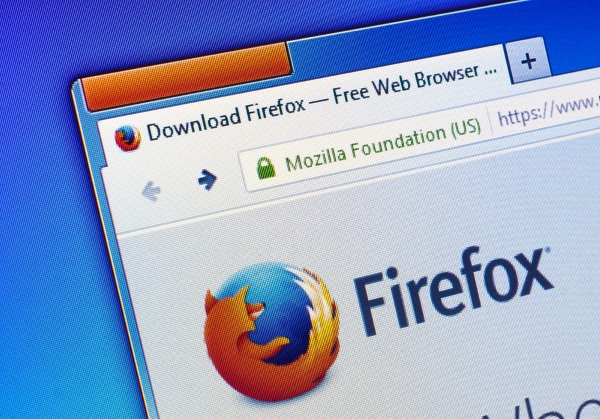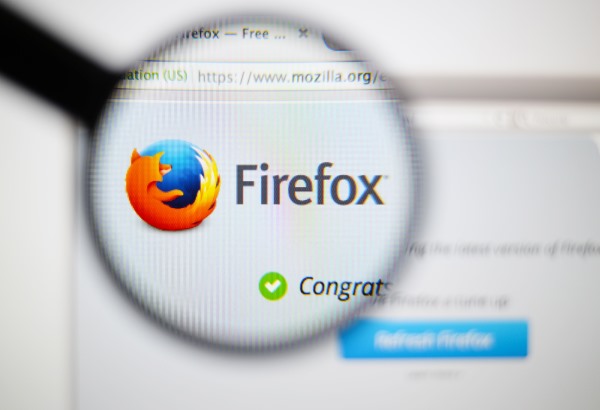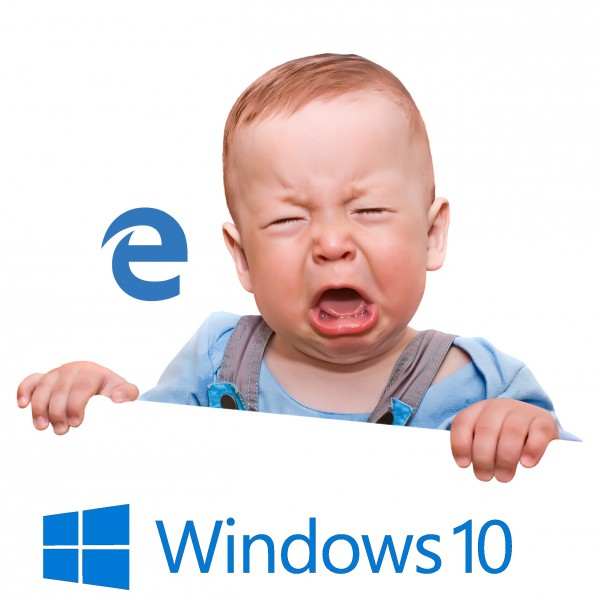
Mozilla sets out its proposed principles for content blocking
With Apple embracing ad blocking and the likes of AdBlock Plus proving more popular than ever, content blocking is making the headlines at the moment. There are many sides to the debate about blocking ads -- revenue for sites, privacy concerns for visitors, speeding up page loads times (Google even allows for the display of ads with its AMP Project), and so on -- but there are no signs that it is going to go away.
Getting in on the action, Mozilla has set out what it believes are some reasonable principles for content blocking that will benefit everyone involved. Three cornerstones have been devised with a view to ensuring that content providers and content consumers get a fair deal, and you can help to shape how they develop.

Maintaining momentum in an open-source community
Building an open-source community takes dedication, hard work and no small number of late nights. As a community gets started there is generally a sense of momentum, ownership and deep commitment. But what happens once your community becomes established and successful? Inevitably volunteers are going to cycle in and out. As a community leader, you need to consider methods to bring in new members, spread the workload and communicate where and when the project could use help. How can you maximize growth and maintain your momentum?
At the Mozilla Developer Network we've kept our community engaged and involved for 10 years. Here are some tips on how we managed it.

Mozilla takes on the problems with web content blocking
There's been a lot of talk lately about ad-blocking thanks to iOS 9. It's a tough call, given that some users don't want to see ads, but the sites they visit wouldn't exist without those ads -- block them and the sites go away, eventually. That makes for quite a conundrum, and Mozilla is trying sort it out. The Firefox maker refers to it more benignly as "content blocking".
Mozilla hasn't quite figured this all out and it is looking for users to help with the puzzle. The organization isn't interested in what the problem is, but is focusing more on why users choose to do this by utilizing blocking agents.
Firefox 41 adds instant messaging support to Firefox Hello
Mozilla has released Firefox 41 FINAL for desktop, with Firefox for Android 41.0 due imminently.
The desktop build introduces a large number of mainly incremental changes – the most interesting are profile picture support for Firefox Accounts and the addition of instant messaging to Firefox Hello -- while the mobile version makes it possible to utilize different search providers from the search panel.

Firefox for iOS public preview available now -- in New Zealand only
Firefox is a wonderful browser that can be found on multiple operating systems, such as Windows, OS X, Android, Ubuntu and more. One place it is absent, however, is iOS. In other words, it is not available on the wildly popular iPhone and iPad. This is tragic, but not without reason. Mozilla pledged to avoid iOS, as Apple prevents the use of alternative engines, such as Gecko. The company has since reversed course, however.
Today, Mozilla announces that a public preview of Firefox for iOS is now available. Excited? You probably shouldn't be. Why? It is a New Zealand exclusive for now. I can understand wanting to restrict the preview, but making it an exclusive to that country only just seems very random. Right?

Mozilla, Microsoft, Amazon, Google, Intel and others form 'Alliance for Open Media'
Both open and closed projects have their place; there are arguments for each as to which is better. For standards, however, open is preferable. By preventing licencing fees and legal patent battles, the technology can continuously evolve without interruption.
Today, Mozilla announces a partnership with Microsoft, Amazon, Google, Intel, Cisco and Netflix to form the Alliance for Open Media. This partnership will create a royalty-free standard for playing media on the web which will be released under Apache 2.0 license.

Firefox stealthily loads webpages when you hover over links -- here's how to stop it
Pre-fetching or caching of web pages is a technique used by many web browsers to improve perceived performance -- it's nothing new. But Firefox takes a slightly sinister and stealthy approach. Simply hover your mouse over a link and the browser fires off requests to the associated website in the background.
While this sounds potentially helpful, it is also something of a privacy and security concern -- not to mention a waste of bandwidth. You might hover over a link simply to check out the destination in the status bar; if there is a link to a malicious or unsavory website, you probably don’t want these stealthy connections being made in the background. If you're worried about your security or privacy, or just want to be back in control of your web connection, there are steps you can take.

Update Firefox right now to squash file stealing bug
Firefox users are being encouraged to upgrade to the latest version of the browser as soon as possible after the discovery of a serious security flaw in the software. Mozilla was quick to patch the security hole which could result in users' personal files being uploaded to a remote server.
Affecting the Windows and Linux versions of Firefox, the security vulnerability stems from the browser's PDF viewer. It allows for the injection of JavaScript that could be used to locate sensitive files and transfer them to a remote server.
Should we all be as pissed as Mozilla about Edge taking over in Windows 10?
Microsoft is no stranger to controversy when it comes to web browsers. Internet Explorer has been the butt of jokes for many years, and the company also found itself in trouble in Europe as part of an antitrust case. With the release of Windows 10, history could be about to repeat itself.
Mozilla CEO Chris Beard penned a letter to Microsoft the other day expressing his disappointment that people upgrading to Windows 10 have their default browser choice overridden and changed to Microsoft Edge. While some may feel that Mozilla is whining, it could be argued that the company is right to be pissed -- and Windows 10 users should be just as pissed at the liberties Microsoft is taking.

Mozilla whines about Windows 10 -- writes misguided open letter to Microsoft CEO
When it comes to web browsers, I use many. Firefox is my go-to most of the time, but I also like Google Chrome and Microsoft's newly-released Edge. Mozilla's browser is extremely important to me, as I feel the world needs a truly open-source web browser. With that said, Firefox has been lagging behind lately and disappointing its core. The company only recently started developing a 64 bit Windows variant again -- it is insane that development stalled no matter what argument it gives. Worst of all, Mozilla started bundling the Pocket service in the browser. The service isn't bad, but it shouldn't be bundled.
Today, Mozilla chooses to whine about browser choice in Windows 10. Chris Beard, Mozilla CEO, pens an open letter to Satya Nadella (in full below), in which he argues that Windows 10 takes away a user's choice by "design". While I can understand his point, it is misguided and he comes off as petty and desperate. Do you agree?

Mozilla Developer Network turns 10
In February 2005 a small team of developers set out to create an open, free, community-built online resource for all Web developers.
A few months later, on 23 July, 2005 the original Mozilla Developer Network wiki site launched. Since then it has evolved steadily for the convenience and the benefit of its users.

Chrome blocks access to torrent sites
Chrome users who download torrents may be thinking about switching to a different browser. Google's web browser is now blocking access to a number of big name torrent sites. This is not a case of Google taking the moral high ground about the rights and wrongs of torrenting, but part of the search giant's security program to protect users from "harmful programs".
Starting yesterday, downloaders found that access was blocked to ExtraTorrent and KickassTorrents, although the block was later lifted. The block remains in place for other torrent sites including kat.cr. Upon attempting to visit an affected site, would-be torrenters are greeted by a red, full-screen security warning that advises of the potential danger of the site in question.
How Mozilla plans to attract new Firefox users
Firefox is set to introduce a host of new features in an attempt to win back users. The web browser, developed by Mozilla, has seen its usage share fall steadily since 2010 as other browsers, notable Google Chrome, have become more popular.
In an email to Firefox developers, the browser’s director of engineering Dave Camp outlined the Three Pillars of the new Firefox, features that he hopes will ensure that the next release is the best it can possibly be.
Firefox 39 introduces social network sharing of Hello conversations
Mozilla has unveiled the latest version of Firefox, 39.0 for Windows, OS X and Linux PCs, along with Firefox for Android 39.0.
The new desktop build adds a social invite tool for its Firefox Hello chat feature while implementing a number of improvements and security features for Mac OS X and Linux.

Mozilla accidentally exposes the T-shirt sizes of its developers
User data compromises and leaks are very unfortunate events. As a result of a hack or improper security, a person's identity could be stolen. Sadly, it is all too common for someone's social security number, date of birth and more to get into the hands of evil-doers.
Sometimes though, it can be a bit silly and funny. In mid-March, Mozilla had a contest, where it asked developers to come up with a t-shirt design. In mid-June, a winner was chosen and the developers were invited to reserve a t-shirt online using Google Form. Unfortunately, someone at Mozilla pulled a boner, and the t-shirt sizes of 70 developers were made public. Oh, the humanity!
